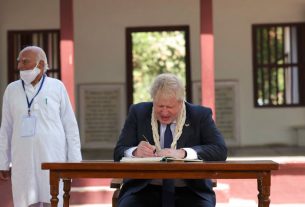The UK government’s denials came swiftly after media reports earlier this week had announced that the UK had agreed on terms to rejoin the Horizon deal. Both Politico and the Daily Express had reported that negotiators had trashed out the details that would see Great Britain participating in EU research and development projects. According to Research Professional News, a government source said:
“Talks are ongoing, and therefore, we have not yet agreed a deal.”
“UK participation in EU programmes must be fair for UK researchers, businesses and taxpayers, and we have set out our bold, ambitious alternative, Pioneer if we’re not able to secure association on that basis”.
The EU Commission confirmed it was “in discussions with the UK on its participation in EU programmes” without commenting on a possible breakthrough.
The point of contention is believed to be the funding the UK is to contribute. But according to the BBC, the government now has two associate membership options, with the EU and the British science community awaiting Rishi Sunak’s signature.
The PM reportedly prefers a UK-led international science research programme, even though British scientists have anonymously and continuously campaigned for Horizon Europe. Anger from the science community would be ‘unimaginable’ was Sunak to reject both options, a science leader told the BBC. Many research teams have been in limbo during the negotiations warning that the UK’s non-participation was damaging Britain’s competitiveness.
A provisional agreement on associate membership was part of the EU Withdrawal Agreement, which did not materialise over issues surrounding the Northern Ireland Protocol. After reaching an agreement in February this year, the science community expected a Horizon deal to follow immediately.
But the UK government was unhappy with its contribution rates. Whereas EU member states contribute 8% more than they receive, the UK was to receive 12% less than it invested. Talks are believed to have produced two formulae to address the issue, one of which the PM is now expected to choose. An agreement could be reached at the weekend, and Rishi Sunak could finalise it when meeting EU Commission President Ursula von der Leyen next Tuesday.
Scientists unanimous in urging the government to sign the Horizon deal
The science community reacted with enthusiasm to news of an agreement earlier this week. Speaking to the BBC, University College London science policy professor James Wilsdon said that the uncertainty had “blighted” the collaboration between British and European R&D teams.
“In haggling over the budget, the UK was in danger of being penny wise but pound foolish — emphasising short-term costs over the huge long-term gains that will flow from UK participation.
“Hopefully, a compromise has now been reached, and the research community can move forward with the clarity and commitment that it has been crying out for.”
Nobel prize winner Sir Paul Nurse urged Rishi Sunak to sign the Horizon deal “without further delay”.
Executive Director of Campaign for Science and Engineering Prof Sarah Main said:
“I urge the prime minister and President of the European Commission to secure this agreement, enabling researchers to get on with the vital role they play in improving people’s lives and livelihoods.”
On BBC Radio 4’s Today programme, chief executive of Universities UK Vivienne Stern said there were a lot of people in Europe “with their fingers and toes crossed that it (Horizon Europe deal) gets across the line”.
She emphasised that participation would translate into research collaboration opportunities and more substantive grants for British universities.
Cancer Research UK director of policy Owen Jackson told Research Professional News:
“Cancer Research UK has continually argued that association to Horizon Europe is overwhelmingly in the best interests of people living with cancer, and the scientists and clinicians researching new ways to beat it.
“Reports of a draft deal for association are encouraging after months of uncertainty. We look forward to commenting on the detail of any agreement, once published.”
Some scientists have been scathing in their attacks on Rishi Sunak’s approach to science.
Director of Scientists for the EU lobby group, Mike Galsworthy, told Research Professional News:
“The UK government approach to UK science and higher education since Brexit has been so thoroughly depressing that I dare not hope, but just dearly wish it would just start to turn around.
“In short, I don’t trust him (Sunak) to do the right thing. I worry that he may have only negotiated partial access or something inadequate like that. I hope I’m wrong.”




